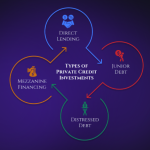Understanding when you become liable to pay taxes is essential for managing your finances efficiently. Whether you’re employed, self-employed, or both, knowing when tax payments kick in helps you plan better and avoid any surprises. In this blog, we’ll break down when and how different income sources become taxable in the UK for the 2024/25 tax year.
When Do I Start Paying Tax in the UK?
In the UK, everyone is subject to income tax, regardless of employment status. However, you won’t pay tax on all your income. For the 2024/25 tax year, you can earn up to £12,570 before any income tax is due, thanks to the personal tax allowance. After that, your income is taxed at varying rates depending on the amount you earn. In addition to income tax, you’ll also be liable for National Insurance (NI) once you hit certain thresholds.
When Do You Start Paying Tax on Wages? (Employed)
If you’re employed, your income tax and National Insurance are usually deducted automatically through the Pay As You Earn (PAYE) system. The moment your salary or wage exceeds the personal tax allowance of £12,570, you’ll start paying income tax.
Here’s a breakdown of the income tax rates for the 2024/25 tax year:
- Basic Rate (20%): For income between £12,571 and £50,270
- Higher Rate (40%): For income between £50,271 and £125,140
- Additional Rate (45%): For income above £125,140
On top of this, employees also pay Class 1 National Insurance. You’ll begin paying National Insurance once you earn more than £242 per week. The contributions go towards funding the NHS, state pensions, and other social benefits.
When Do I Start Paying Tax as Self-Employed?
If you’re self-employed, tax obligations depend on your earnings. The first £1,000 of income from self-employment is covered by a trading allowance, which means you don’t pay tax on it. However, once your income exceeds this allowance, you’ll need to register for self-assessment with HMRC and file your tax return.
For National Insurance, if you earn over £6,725 a year, you’ll pay Class 2 National Insurance. If your income exceeds £12,570, you’ll pay Class 4 National Insurance. Class 2 is optional but paying it allows you to maintain your eligibility for state benefits.
When Do I Start Paying Tax on Savings and Investments?
The tax you pay on savings and investments varies depending on the type of investment and how much you earn. Let’s look at some common sources of investment income:
Tax on Capital Gains
Capital gains tax (CGT) is applied to the profit you make from selling assets like property or shares. For the 2024/25 tax year, you can make up to £3,000 in tax-free gains before CGT kicks in. If your gains exceed this amount, you’ll pay tax at the following rates:
- 24% for gains on residential property
- 28% for certain investment funds (known as carried interest)
- 24% for other chargeable assets
A handy tip is to consider timing your sales to spread them across tax years, helping you stay within the annual exemption limit.
Tax on Dividends
If you earn dividend income from investments, you’ll start paying tax once your dividends exceed £500. The tax rates for dividends are:
- Basic Rate (8.75%) for dividends falling within the basic tax band
- Higher Rate (33.75%) for dividends in the higher tax band
- Additional Rate (39.35%) for dividends in the additional tax band
A strategy that many high earners use is to take a portion of their income as dividends rather than salary, as it can lead to tax savings.
Other Tax-Efficient Tips
To maximise your wealth while minimising tax, consider these strategies:
- Use ISAs (Individual Savings Accounts): Any gains from investments held in ISAs are tax-free, so make sure you use your ISA allowance each year.
- Offset Investment Losses: If you’ve incurred losses on some investments, you can offset them against any gains, reducing your CGT liability.
- Gifting Assets to Family Members: If you have lower-earning family members, consider gifting assets to them. This allows them to take advantage of their own tax-free allowances, particularly for dividend income.
- Consider Trusts: Placing assets in a trust can help reduce inheritance tax, though it’s essential to understand the rules and implications before doing so.
- Salary Sacrifice Schemes: Participate in salary sacrifice schemes like pensions or cycle-to-work programs to reduce your taxable income.
- Pension Contributions: Contributing to a pension is a great way to reduce your taxable income, and these contributions may also qualify for tax relief.
- Maximise National Insurance Contributions: For couples, sharing family responsibilities can help maximise National Insurance records, which is crucial for pensions and benefits.
Conclusion
Understanding when you start paying taxes in the UK is essential for managing your finances and avoiding unexpected tax bills. Whether you’re employed, self-employed, or have other sources of income, knowing your tax-free allowances and how different types of income are taxed will help you stay on top of your financial obligations. Additionally, there are several tax-efficient strategies that can help reduce your liabilities and maximize your wealth. Always consider seeking advice from a tax professional to tailor the best approach for your individual situation.



